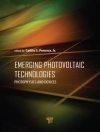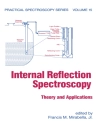The Latest Applications For Cellmechanism Research in Drug Discovery
Designed to connect research on cell mechanisms with the drug discovery process, Therapeutic Targets: Modulation, Inhibition, and Activation introduces readers to a range of new concepts and novel approaches to drug screening and therapeutic drug targeting to help inform future avenues of drug research. Highly topical, this accessible edited volume features chapters contributed by respected experts from around the globe.
The book helps postgraduate students and professional scientists working in academia and industry understand the molecular mechanisms of pharmacology, current pharmacological knowledge, and future perspectives in drug discovery, focusing on important biochemical protein targets and drug targeting strategies for specific diseases. Examining the pharmacology of therapeutically undefined targets and their potential applications, it includes chapters on traditional therapeutic targets, including enzymes (phosphodiesterases and proteases), ion channels, and G protein-coupled receptors, as well as more recently identified avenues of exploration, such as lipids, nuclear receptors, gene promoters, and more.
Since different diseases require different targeting techniques, the book also includes dedicated chapters on strategies for investigating Alzheimer’s, diabetes, pain, and inflammation treatments. Concluding with a cross-sectional look at new approaches in drug screening, Therapeutic Targets is an invaluable resource for understanding where the next generation of drugs are likely to emerge.
Innehållsförteckning
Preface vii
Contributors ix
1. c AMP-Specific Phosphodiesterases: Modulation, Inhibition, and
Activation 1
R. T. Cameron and George S. Baillie
2. Protease-Activated Receptor 2 37
Qihai Gu and Lu-Yuan Lee
3. Voltage-Gated Sodium Channels as Therapeutic Targets 63
Joshua S. Wingerd, Irina Vetter, and Richard J. Lewis
4. Multitarget Drugs for Stabilization of Calcium Cycling and
Neuroprotection in Neurodegenerative Diseases and Stroke 123
Antonio M. G. de Diego, Silvia Lorrio, Jesús M.
Hernández-Guijo, Luis Gandía, and Antonio G.
García
5. Oligomerization of G-Protein-Coupled Receptors 201
Juan F. López-Giménez and Javier
González-Maeso
6. Sigma 1 Receptor Chaperone: Pharmacology and Therapeutic
Perspectives 225
Daniel Zamanillo, Enrique Portillo-Salido, José Miguel
Vela, and Luz Romero
7. Lipids as New Targets 279
Eduardo Domúnguez
8. Knowledge Base for Nuclear Receptor Drug Discovery 309
Albert A. Antolín and Jordi Mestres
9. Gene Promoters and Transcription Control Regions as
Therapeutic Targets 327
Antonio Zorzano, David Sebastian, Jana Sánchez-Wandelmer,
Laia Miret, and Fernando Albericio
10. Roles of Glucagon-Like Peptide and Glucose-Dependent
Insolinotropic Polypeptide Hormones in Brain Function and
Neurodegeneration 351
Christian Hölscher
11. Exocytotic Machinery as a Target for the Development of New
Drugs for Schizophrenia 375
María Jose Guerrero, Itsaso Hormaeche, María
Uribarri, Julie Masse, and José María Palacios
12. Targeting Epigenetic Abnormalities in the Brain 409
Erin Y. Sterner, Lisa E. Kalynchuk, and Hector J.
Caruncho
13. Rodent Models as Tools for Discovering Novel Therapeutic
Targets in the Brain: The Case of Epilepsy 427
Justin J. Botterill, Axel J. Guskjolen, Lisa E. Kalynchuk, and
Hector J. Caruncho
14. New Approaches Applied to Drug Screening 455
José Brea and María Isabel Loza
Index 477
Om författaren
Luis M. Botana was Director of the Department of Pharmacology at the University of Santiago de Compostela (USC), Director of the European Union Reference Laboratory for Marine Biotoxins, and scientific advisor to the drug company LCIFGA. The author of 200 papers and 15 patents, Dr. Botana is the editor of several other books, including Phycotoxins: Chemistry and Biochemistry, published by Wiley (2007).
Mabel Loza is Professor of Pharmacology at the University of Santiago de Compostela (USC). She created the USEF Drug Screening Platform, with more than ten years of experience in public and private mixed early drug discovery programs.












